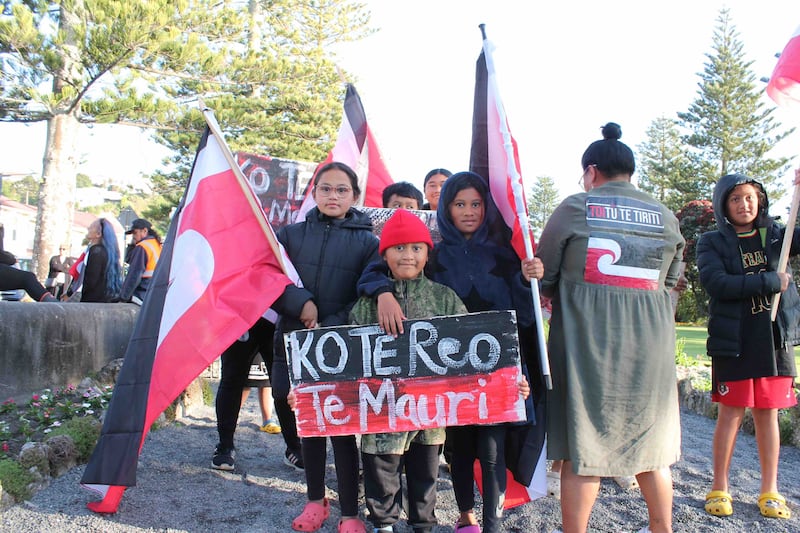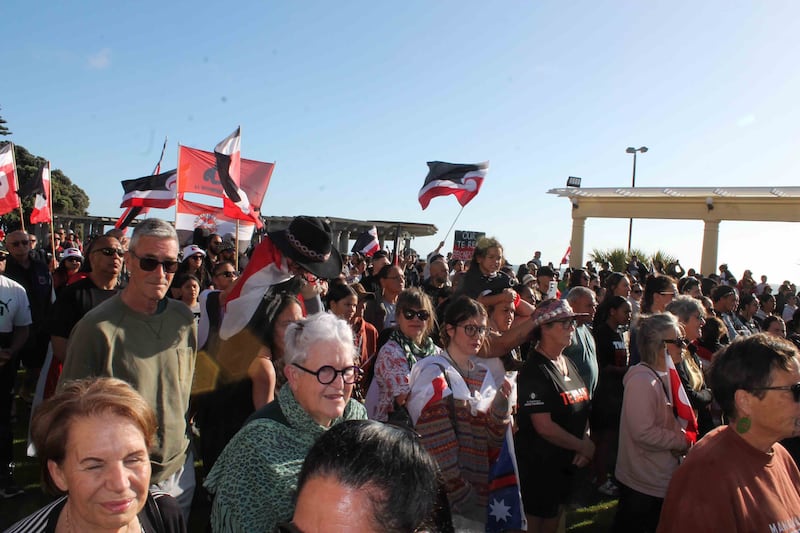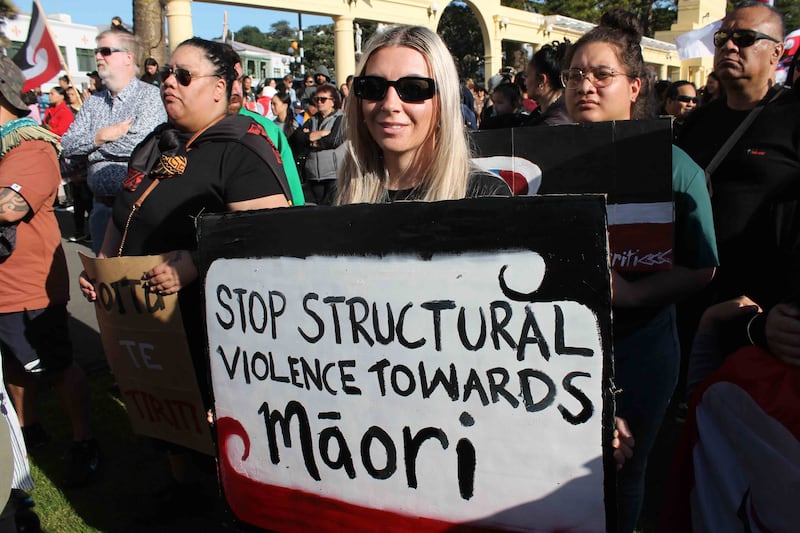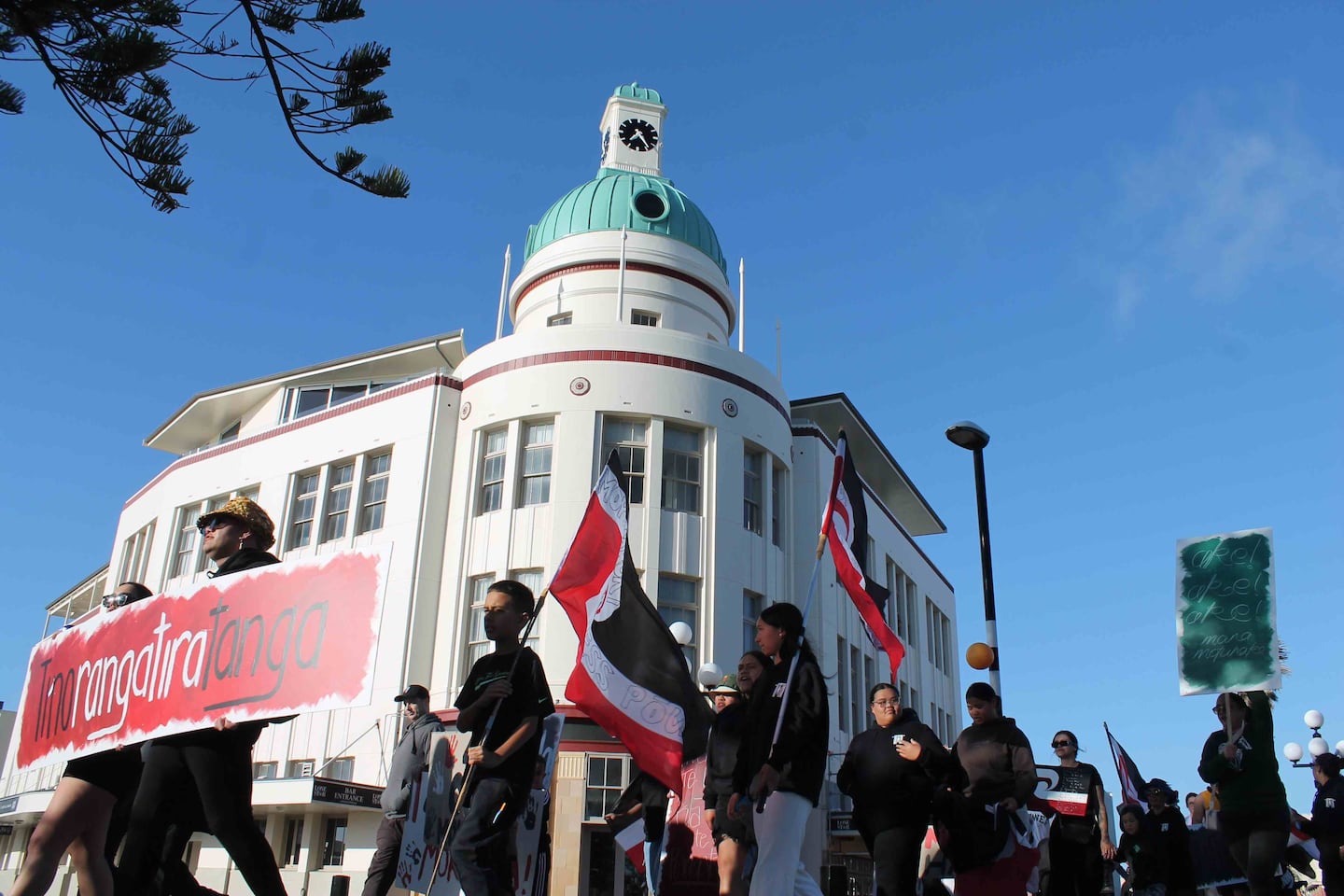The coalition government is confiscating hard-earned and fought for treaty rights, a mana whenua-led hui in Napier has heard.
A crowd of about 1500 demonstrated at the Napier Marine Parade Soundshell on Saturday morning.
The area was a sea of red, white and black flags, as Māori protestors were joined by non-Māori, waving tino rangatiratanga flags across the city.
The demonstration followed a nationwide Māori Action Day on Tuesday, where thousands of protesters took to roads to show opposition to what they say is the new Government’s stance to undo a raft of policies related to Te Ao Māori.

The National-led coalition has pledged to remove co-governance, dismantle the Māori Health Authority (Te Aka Whai Ora), restore referendums for Māori wards and introduce a Treaty Principles Bill based on Act Party policy.
Recently resigned Te Taiwhenua o Te Whanganui ā Orotu chief executive Tania Eden told the Napier crowd that in three months the coalition government had swept aside the rights Māori had fought for over 180 years.
The new coalition government’s plan to review the principles of Te Tiriti o Waitangi was “a modern-day confiscation of our treaty rights, hard-earned and fought for by our ancestors,” she said.
The Government planned to repeal or review at least 12 policies that provided for Māori, including initiatives designed to improve Māori health outcomes, stopping “race-based” policies, and minimising Māori language use in the public service.

Allowing the sale of cigarettes to raise funds to pay for tax cuts would result in more Māori dying from cancer-related illnesses, she said.
On average, Māori died seven years younger than non-Māori, which was one of the reasons the previous Government set up the Māori Health Authority Te Aka Whai Ora, she said.
The authority’s job was to commission Māori health services, achieve equitable outcomes for Māori and monitor the performance of the publicly-funded health system.
“Why would they abolish this?” she asked.

Other concerns included a coalition agreement to examine Auckland and Otago Universities’ Māori and Pacific Admission Scheme for medical and health science students, with the aim of getting rid of it.
Also, the coalition partners agreed to restore the right to local referendum on the establishment or ongoing use of Māori wards.
“We marched against this in 2021,” she said.
The proposed Treaty Principles Bill and plans to ensure the United Nations Declaration on the Rights of Indigenous Peoples would not have a binding legal effect in New Zealand, were also concerns.
“Continued breaches of Te Tiriti over the past 183 years have in fact already created separate health and justice systems, as well as drastically different outcomes in wellbeing and economic security for Māori.,” she said.
“Institutional racism and widespread ignorance of the history of colonisation in Aotearoa has ensured that those inequities have stayed embedded in policy and our legal systems, in every area of life,” she said.
“We must protect the Treaty of Waitangi rights and interests that we have negotiated in good faith at all costs.
“We will not sit back and watch this government erode the rights of our mokopuna for a better life,” she said.

